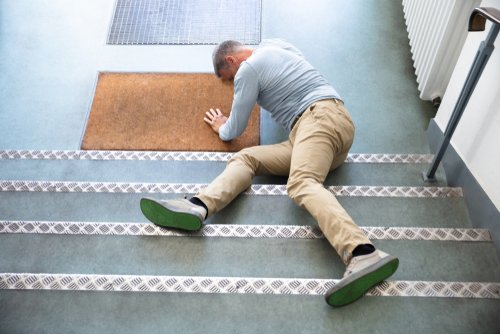Slip and fall accidents are more common than many people realize, and they can lead to serious injuries. If you or someone you know has been injured in a slip and fall accident, it’s crucial to understand your legal rights and options. Here’s a comprehensive guide on slip and fall personal injury lawyer what you need to know about slip and fall cases and how a personal injury lawyer can help.
What is a Slip and Fall Case?
A slip and fall case falls under the umbrella of personal injury law. It occurs when someone slips, trips, or falls due to hazardous conditions on someone else’s property. These accidents can happen anywhere—on sidewalks, in grocery stores, at work, or even at a friend’s house.
Common Causes of Slip and Fall Accidents
Slip and fall accidents can result from a variety of conditions, including:
- Wet or Slippery Floors: Spills, leaks, or mopping can create dangerous conditions.
- Uneven Surfaces: Cracked sidewalks, potholes, or uneven flooring can be hazardous.
- Obstructed Walkways: Items left in walkways or poorly lit areas can cause accidents.
- Ice and Snow: In colder climates, untreated ice or snow can be a significant hazard.
Proving Liability in a Slip and Fall Case
To win a slip and fall case, you typically need to prove the following:
- Duty of Care: The property owner had a duty to maintain a safe environment.
- Breach of Duty: The property owner failed to address or fix a hazardous condition.
- Causation: The hazardous condition directly caused your injury.
- Damages: You suffered actual damages as a result of the fall, such as medical expenses, lost wages, or pain and suffering.
Steps to Take After a Slip and Fall Accident
- Seek Medical Attention: Always prioritize your health. Even if your injuries seem minor, some conditions may not be immediately apparent.
- Document the Scene: Take photos of the hazard that caused your fall, your injuries, and any relevant conditions. Collect witness statements if possible.
- Report the Incident: Notify the property owner or manager about the accident and file a report if required.
- Consult a Personal Injury Lawyer: An experienced lawyer can help you navigate the complexities of personal injury law and ensure your rights are protected.
How a Personal Injury Lawyer Can Help
Hiring a personal injury lawyer can make a significant difference in the outcome of your case. Here’s how:
- Investigation and Evidence Gathering: Your lawyer will gather evidence, speak with witnesses, and consult with experts to build a strong case.
- Negotiation with Insurance Companies: Insurance companies often try to settle for less than you deserve. Your lawyer will negotiate on your behalf to ensure you receive fair compensation.
- Legal Representation: If your case goes to court, your lawyer will represent you and fight for your rights.
What to Look for in a Personal Injury Lawyer
When choosing a personal injury lawyer, consider the following factors:
- Experience: Look for a lawyer with experience handling slip and fall cases specifically.
- Reputation: Check reviews and testimonials from previous clients.
- Communication: Choose a lawyer who communicates clearly and keeps you informed throughout the process.
- Fees: Many personal injury lawyers work on a contingency fee basis, meaning they only get paid if you win your case.


